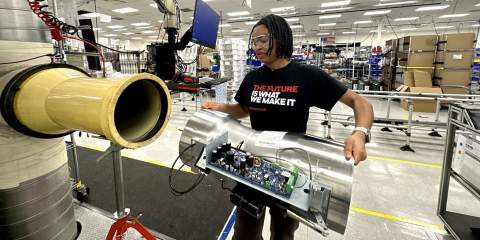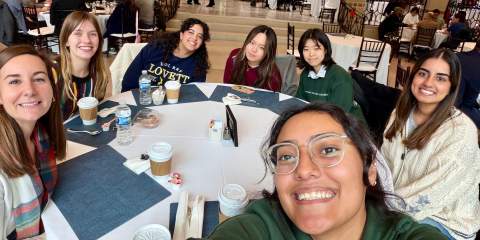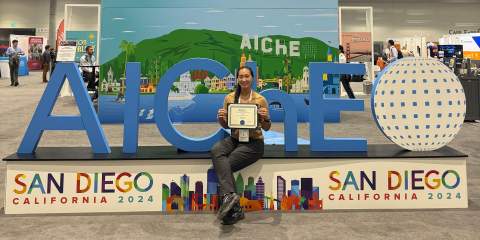My journey with undergraduate research began with just one sociology class, SOCI 314: Science at Risk? In this course, we examined the most controversial issues facing science today, revolving specifically around how the public sphere interacts with science. Through this class, Dr. Elaine Howard Ecklund invited us to attend a Religious and Civic Leaders Gathering hosted by the Religion and Public Life Program at Rice (RPLP), where we had the opportunity to participate with and learn from different scholars and leaders about studies of science and religion. Inspired by this experience, I applied to become an undergraduate scholar with the RPLP under the Boniuk Institute. Focusing on a central mission of understanding and promoting religious tolerance, the Boniuk Institute conducts interdisciplinary research to promote greater dialogue in academia and local and national communities at large.
When I joined the team at the very beginning of my sophomore year, I had no background in any official research. However, at every step, I was absolutely amazed at how welcomed I felt by everyone throughout the experience. From graduate scholars to postdoctoral fellows to research directors, everyone was willing to support and guide me as I learned. Undergraduate involvement is a central part of the RPLP’s commitment to training future scholars. RPLP integrates undergraduate training and education into every aspect of its work studying religion’s impact on spheres like politics and the workplace.
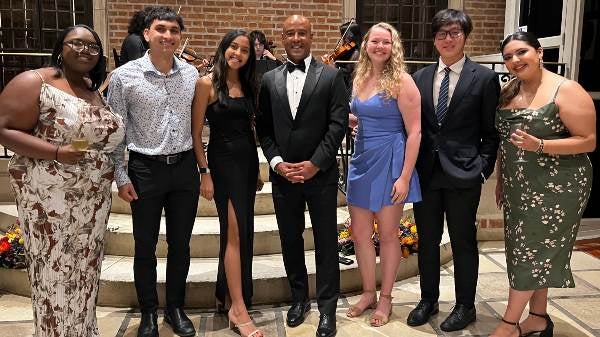
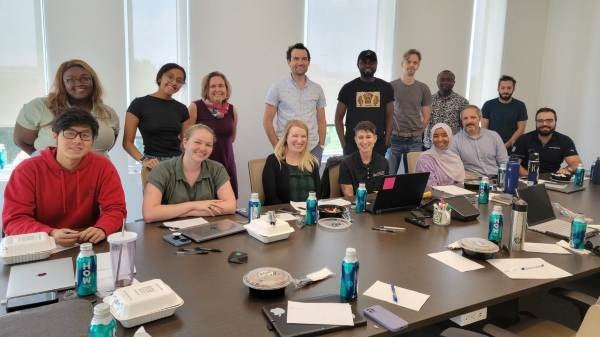
Now, as a junior, I am in my second year working with the Boniuk Institute and RPLP. I have had the opportunity to be involved in every aspect of the social science research process: from reading grant proposals to literature reviews to editing papers for publication. My current work involves a multitude of different projects, including background research for a study on scientists and religion along with creative work for social media. This semester, I have additionally had the opportunity to attend the Boniuk Institute’s Graduate Reading Religion Salon and interact with a diverse group of scholars and academic work. I am really grateful for how I have been embraced in this role and also for how I have been able to use my creativity, academic background, and perspective in this experience. Beyond giving me the ability to contribute to meaningful work, the Boniuk Institute has been invaluable to my own personal and academic growth. I know I will carry these experiences with me throughout the rest of my life.
- Adrienne, B. '25
Keep Exploring
As a senior Mechanical Engineering student at Rice with three internships under her belt, Claire, Martel '26, has both the skills and confidence to succeed and conquer the corporate world. But her path wasn’t always easy! Discover how resources at Rice helped shape her journey as a future mechanical engineer.
Landing a research position doesn't have to be a cutthroat competition! From Google Forms to sheep brain dissection, explore how Jessie, Duncan '28, navigated Rice’s limitless opportunities to secure hands-on experience in an I/O Psychology lab.
For Aoife, Wiess ‘27, being an engineering major at Rice means endless opportunities. Explore how her involvement in the American Institute of Chemical Engineers chapter at Rice has shaped her journey!
Helpful Links
713-348-7423
admission@rice.edu
M-F 8:30 a.m. to 5 p.m. CT
